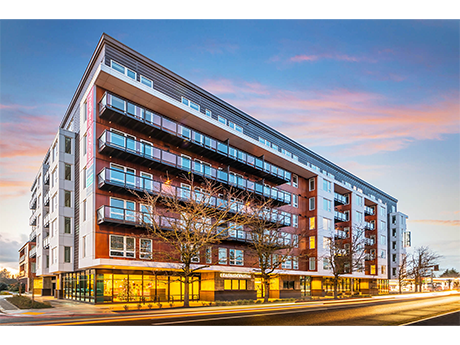WASHINGTON, D.C. — The Biden administration has called on Congress to pass rent-control legislation that would affect more than 20 million rental homes across the country. Under the proposed rule, landlords with more than 50 units in their portfolios would forfeit federal tax breaks if they raise rents annually more than 5 percent on their existing units.
If passed, this rule would be in force beginning this year and would last through 2026. The plan would include an exception for new construction and for units currently undergoing substantial renovation or rehabilitation.
Failing to hit the 5 percent cap, owners would lose out on what’s known as “faster deprecation” write-offs. According to Investopedia, property owners can deduct market value loss and the costs of buying and improving a property from their taxes.
Most multifamily industry leaders are against rent control for several reasons but chiefly because they say such measures reduce the incentive to build more housing or to renovate and improve existing properties. Ahead of the White House’s announcement, which was released this morning, numerous public policy groups spoke out against the proposal.
“This legislative proposal will not create a single new unit while raising costs on the very residents it purports to help,” said Sharon Wilson Géno, president of the National Multifamily Housing Council (NMHC). “Rent control has been tried for decades and has been a resounding failure. Now is the time for actual solutions, not electioneering.”
In a prepared statement, Bob Broeksmit, president and CEO of the Mortgage Bankers Association (MBA), concurred that rent control has historically proven to be a flop.
“There are endless examples in localities in America and around the world that prove that rent control is a counter-productive policy idea that ultimately harms renters by distorting market pricing, discouraging new construction and degrading the quality of rental housing. While the odds are stacked against this proposal ever passing Congress, a federal rent control law would be catastrophic to renters and our nation’s rental housing market.”
Plan Also Addresses Public Land Use, GSE-Financed Properties
The Federal Housing Finance Agency (FHFA) also unveiled new measures to protect renters in communities financed by loans acquired by Fannie Mae and Freddie Mac. The protections include: requiring a 30-day notice before rent increases; requiring a 30-day notice on lease expiration; and providing a five-day grace period before imposing late fees on rental payments.
Additionally, the Biden administration unveiled several initiatives from federal agencies to repurpose surplus government-owned land to build more affordable housing across the country.
For instance, the U.S. Bureau of Land Management plans to repurpose 562.5 acres of public land in Nevada to support the construction of approximately 15,000 affordable housing units near Las Vegas. The United States Forest Service is looking to lease Forest Service land to build workforce housing. The United States Postal Service will also repurpose certain surplus properties for housing.
HUD also announced $325 million in Choice Neighborhoods grants to build new affordable homes across the country. The Biden administration estimates that the grants will support the construction of more than 6,500 new housing units.


